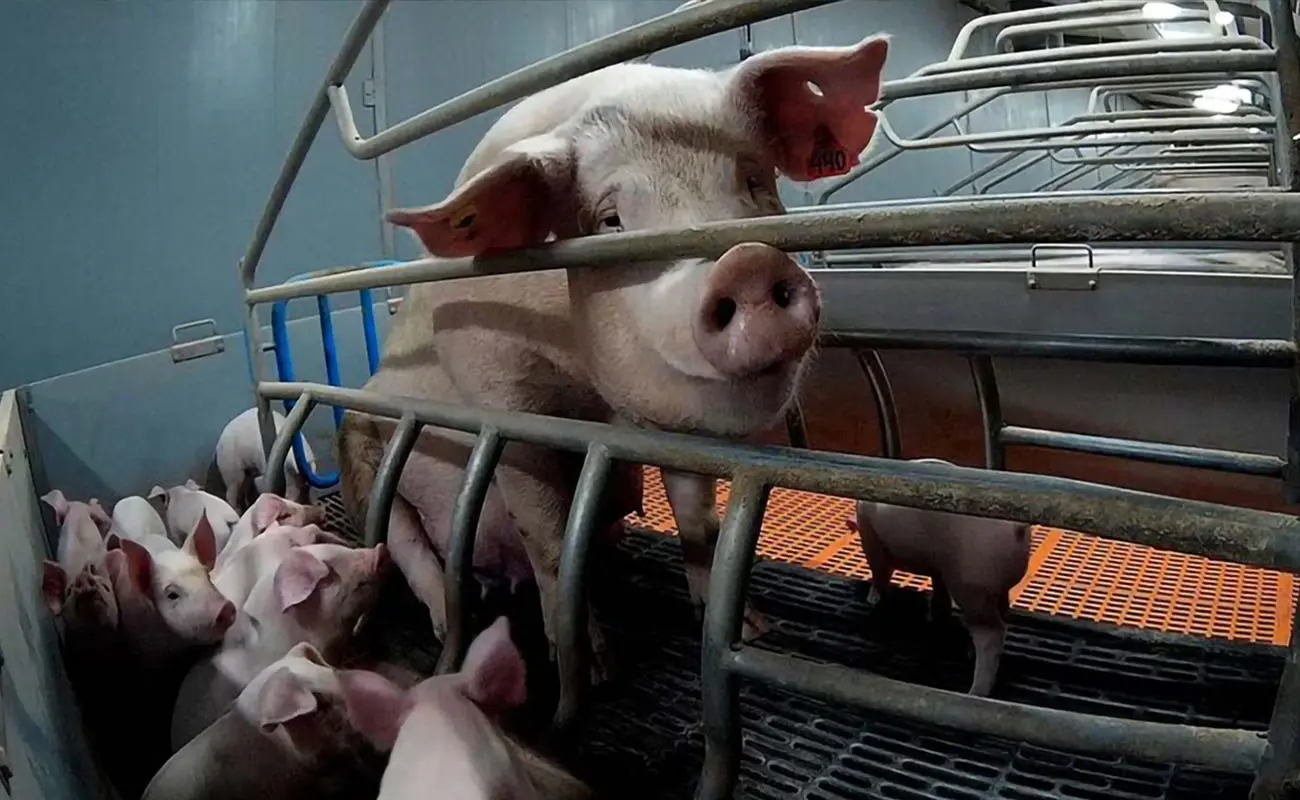Практиките на фабричко земјоделство ги подложуваат милијарди животни на високо индустријализирани услови, давајќи им приоритет на ефикасноста и профитот пред благосостојбата. Говедата, свињите, живината и другите одгледувани животни често се ограничени во тесни простори, лишени од природно однесување и подложени на интензивни режими на хранење и протоколи за брз раст. Овие услови често доведуваат до физички повреди, хроничен стрес и низа здравствени проблеми, што ги илустрира длабоките етички загрижености својствени за индустриското земјоделство.
Освен страдањето на животните, фабричкото земјоделство има сериозни еколошки и општествени последици. Густината на добиток значително придонесува за загадување на водата, загадување на воздухот и емисии на стакленички гасови, а истовремено ги оптоварува природните ресурси и влијае врз руралните заедници. Рутинската употреба на антибиотици за спречување на болести во пренаселени услови покренува дополнителни предизвици за јавното здравје, вклучително и отпорност на антибиотици.
Справувањето со штетите од практиките на фабричко земјоделство бара системска реформа, информирано креирање политики и свесни избори на потрошувачите. Политичките интервенции, корпоративната одговорност и изборите на потрошувачите - како што се поддршката на регенеративното земјоделство или алтернативите базирани на растенија - можат да ги ублажат штетите поврзани со индустријализираното земјоделство на животни. Препознавањето на реалноста на практиките на инфраструктурно земјоделство е клучен чекор кон градење на похуман, одржлив и одговорен систем за храна и за животните и за луѓето.
Отпорноста на антибиотици е ескалирачки глобален здравствен предизвик, при што земјоделството на животни се појавува како значаен придонес за ова прашање. Рутинската употреба на антибиотици во земјоделството со добиток, насочена кон зајакнување на растот и спречување на болести, ненамерно го поттикнува развојот на отпорни бактериски соеви. Овие супербави можат да се шират кај луѓето преку загадена храна, извори на вода и изложеност на животната средина, поткопувајќи ја ефективноста на критичните медицински третмани. Оваа статија ја испитува врската помеѓу употребата на антибиотици во земјоделството и развојот на отпорот, истовремено истакнувајќи одржливи решенија кои можат да го заштитат јавното здравство и да ја зачуваат ефикасноста на антибиотиците за идните генерации


















































